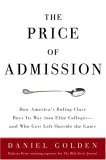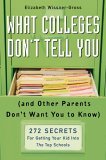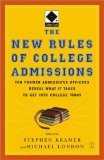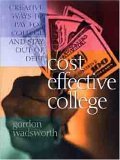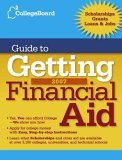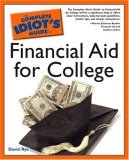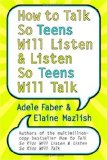
close
window
![]() This symbol appears on some of our pages.It indicates
contributions made to this site by friends and visitors to this site..
This symbol appears on some of our pages.It indicates
contributions made to this site by friends and visitors to this site..
The
Privilege of Education... |
![]()
![]() Homeschooled
Children Can Get Into Good Colleges
Homeschooled
Children Can Get Into Good Colleges
Every year homeschoolers are admitted to hundreds of colleges in at least
five countries. Those who prepare thoroughly can be admitted with full
scholarships at those selective colleges that some parents daydream about
their children attending:
![]() [A
list of colleges and universities that have admitted homescholers]
[A
list of colleges and universities that have admitted homescholers]
![]() Are
You a Helicopter Parent?
Are
You a Helicopter Parent?
Helicopter parents hover. They are always on the lookout for threats to
their children's success and happiness. If a problem does surface, these
parents are ready to swoop in and save the day. [Read
on]
|
|
![]() Helicopter'
parents try too hard
Helicopter'
parents try too hard
By Martha Irvine, AP National Writer November 7, 2006
Some parents are writing their college-age kids' resumes. Others are acting
as their children's "representatives," hounding college career
counselors, showing up at job fairs and sometimes going as far as calling
employers to ask why their son or daughter didn't get a job. It's the
next phase in helicopter parenting, a term coined for those who have hovered
over their children's lives from kindergarten to college. [Read
on ]
![]() What's
in a College Essay?
What's
in a College Essay?
Understanding What Colleges Are Looking for In Your Child
The college essay gives your child a chance to communicate with the school
on a more personal level. [Read
on]
![]() Ten
Stupid Ways to Ruin Your College Application
Ten
Stupid Ways to Ruin Your College Application
By Jay Mathews, Washington Post, October 16, 2007
With just two weeks before the deadline for early action and early decision
applications to many colleges, I offer these examples of wrong-headedness
in the admissions process. [read
on]
![]() Homeschooling
Comes of Age
Homeschooling
Comes of Age
Teaching children at home is no longer just the choice of religious and
political iconoclasts. Now, drawn by Brown’s tradition of independence
and self-direction, a new generation of homeschoolers is arriving—and
thriving—on campus...[read
on]
![]() Live
in the Dorm or Buy a House?
Live
in the Dorm or Buy a House?
Rising college costs are causing some parents to consider alternate housing
for their students: They're bypassing the dorm and off-campus apartments
in favor of buying a condominium or single-family home. In some cases,
it might be not a bad idea.[read
on]
![]() Buy
your college kid a condo?
Buy
your college kid a condo?
Investing in a place for your freshman may seem like a good idea. But
there are lots of risks to consider, including whether your child would
ever vacuum. [read
on].
![]() Merit-Based
Scholarships
Merit-Based
Scholarships
A scholarship is an award of money that
needs not be repaid or earned through employment. Some scholarships are
awarded on the basis of a student’s athletic or other special merits.
Others are given solely on the basis of academic excellence. Generally,
scholarships based on academic achievement are called merit scholarships.
Most awards are based on academic performance as defined by standardized test scores, high school GPA, and/or class rank. Others take leadership, service, and financial need into consideration. Candidates are evaluated individually, which allows scholarship selection committees to take a holistic approach in considering each student's qualifications.
![]() Grants
Grants
Grants are similar to scholarships because they are not repaid or earned
through employment. Eligibility for grants requires only that students
demonstrate need and make satisfactory academic progress.
![]() Private
Award
Private
Award
A private outside award is money given to students by persons or organizations
outside the University. Such awards may range from a few hundred dollars
given by a local service club to several thousand dollars awarded by a
large corporation. Normally, the donor of the award selects the recipients.
Donors also set eligibility and method of payment, as well as award amounts.
Consult employers, local service or professional organizations, trade
unions, foundations, churches, etc., to learn more about those in your
area who may be potential outside award donors.
Most
Universities require that you file a Free Application for Federal Student
Aid (FAFSA)/Renewal Application to be considered for most grants, scholarships,
and fee remissions.
![]() FAFSA
- Free Application for Federal Student Aid
FAFSA
- Free Application for Federal Student Aid
Federal Student Aid, an office of the U.S. Department of Education, ensures
that all eligible individuals can benefit from federally funded or federally
guaranteed financial assistance for education beyond high school.
![]() FastWeb:
Scholarships, Financial Aid and Colleges
FastWeb:
Scholarships, Financial Aid and Colleges
FastWeb, the Internet's leading scholarship search service, helps students
make the decisions that shape their lives: choosing a college, paying
for college, and finding jobs and internships.
And it's all free.
![]() Federal
Aid
Federal
Aid
Federal
Stafford Loan Program
Stafford Loans are federal student loans made available to
college and university students to supplement personal and family resources,
scholarships, grants, and work-study. Nearly all students are eligible
to receive Stafford loans regardless of credit. Stafford loans may be
subsidized by the U.S. Government or unsubsidized depending on the student's
financial need.
Federal
PLUS Loan for Parents
Federal
Parent PLUS Loans is a loan borrowed by a parent on behalf of a child
to help pay for tuition and school related expenses at an eligible college
or university. The student must be enrolled at least half time, and the
parent must pass a credit check in order to receive this loan. The primary
benefit of the PLUS Loans is that parents can borrow federally guaranteed
low interest loans to help pay for their child's education.
|
|||||
|
|
|||||
|
Two
Wolves
|
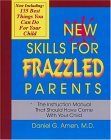 |
 |
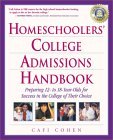 |
 |
|
Hemingway,
Shakespeare Might Flunk SAT Essay Test by Scott Simon for Weekend Edition Saturday, February 21, 2004 NPR's Scott Simon talks to John Katzman about the new SAT essay test. Katzman makes the case, in an article in the Atlantic Monthly, that Ernest Hemingway and Shakespeare would not score well on the essay. |
![]() www.collegeboard.com
www.collegeboard.com
Each year, the College Board serves over three and a half million students
and their parents, 23,000 high schools, and 3,500 colleges through major
programs and services in college admissions, guidance, assessment, financial
aid, enrollment, and teaching and learning. Among its best-known programs
are the SAT, the PSAT/NMSQT® and the Advanced Placement Program®(AP)."
![]() www.princeton
review
www.princeton
review
The world's best test-prep company gives you everything you need for high
school, college and beyond. Whether taking a test, searching for the right
college or graduate school, or planning a career, The Princeton Review
guides you every step of the way.
![]() College
Answer
College
Answer
Students wondering where to go to college and how to get there, or parents
trying to unravel the mystery of the college and the financial aid application
process, College Answer (formerly known as Wiredscholar) is the site for
you.
![]() Services
for Students with Disabilities
(SAT)
Services
for Students with Disabilities
(SAT)
The College Board considers a specific diagnosis of a disability and description
of functional limitations (impact on learning resulting from the disability)
as fundamental components in determining that a student is eligible for
accommodations on College Board tests, and what accommodations appropriately
meet the student's individual needs.
![]() Services
for Students with Disabilities (ACT)
Services
for Students with Disabilities (ACT)
ACT is committed to serving students with disabilities by providing
reasonable accommodations appropriate to the student's disability. ACT
has established policies regarding documentation of an applicant's disability
and the process for requesting accommodations.
![]() Advanced
Placement Classes
Advanced
Placement Classes
As homeschoolers,we cannot call our classes an AP class unless it has
been approved by the college board. To receive authorization from the
College Board to label a course "AP," teachers without previous
authorization for their course(s) must submit two documents related to
the course: a syllabus and the subject-specific AP Course Audit form.
Both documents are submitted online through the AP Course Audit website.[read
more].
The College Board AP Program does not require you to take an AP course before taking an AP Exam. You may repeat an exam in a subsequent year. In such cases, both grades will be reported unless you request that one be withheld or cancelled.
Some very general but key dates for homeschoolers;
Many Universities offer college credit for AP courses, This is a sample segment of a chart from Purdue University:
| Subject Area | College
Board/ Advanced Placement Score |
Purdue Course | Purdue Credit Granted (Sem. Hrs.) |
| English Lang/Composition | 4
or 5 |
ENGL 106 |
4 |
| English Lit/Composition | 4 or 5 | ENGL 231 | 3 |
| B (General Physics) | 5 | PHYS 220 & 221 | 8 |
| C (Mechanics) | 5 | PHYS 172 | 4 |
| Calculus AB | 4 or 5 | MA 165 | 4 |
![]() About
AP at the College Board Website
About
AP at the College Board Website
![]() Interested in AP Courses? General information about the
AP Program is available from
this page.
Interested in AP Courses? General information about the
AP Program is available from
this page.
![]() The
College Entrance Tests
The
College Entrance Tests
![]() The PSAT/NMSQT
The PSAT/NMSQT
This test cannot be administered at home. It is administered at the High
Schools. You can schedule it by contacting the Principal of the local
or a provate high school, when we did this we were referred to one of
the guidance counselors.
The PSAT/NMSQT gives you first hand practice for the SAT. The PSAT/NMSQT measures critical reading, math problem-solving, and writing skills.
[PSAT Resources at the college board]
![]() The SAT- The SAT measures
verbal, math reasoning and writing abilities. These are abilities develop
over time through the work you do in school and on your own. SAT scores
can help and colleges better understand how you compare with other students
preparing for college.
The SAT- The SAT measures
verbal, math reasoning and writing abilities. These are abilities develop
over time through the work you do in school and on your own. SAT scores
can help and colleges better understand how you compare with other students
preparing for college.
![]() SAT Subject Tests (AP) - You can take
Subject Tests to show colleges your mastery of specific subjects, like
English, History and Social Studies, math, science, and language. Colleges
can use your Subject Test scores to make admission decisions, help determine
how well prepared you are for college programs, place you in freshman
or higher-level course work, advise you on course selection. Subject tests
fall into five general subject areas each test for more information: English
(Literature, Writing), History (U.S. History, World History), Mathematics,
Science (Biology E/M, Chemistry, Physics).
SAT Subject Tests (AP) - You can take
Subject Tests to show colleges your mastery of specific subjects, like
English, History and Social Studies, math, science, and language. Colleges
can use your Subject Test scores to make admission decisions, help determine
how well prepared you are for college programs, place you in freshman
or higher-level course work, advise you on course selection. Subject tests
fall into five general subject areas each test for more information: English
(Literature, Writing), History (U.S. History, World History), Mathematics,
Science (Biology E/M, Chemistry, Physics).
[
SAT
Testing Resources ] Learn more about the SAT |
![]() The ACT - American
College Test - Multiple-choice tests cover four skill areas: English,
mathematics, reading, and science. Optional writing test measures skill
in planning and writing a short essay.
The ACT - American
College Test - Multiple-choice tests cover four skill areas: English,
mathematics, reading, and science. Optional writing test measures skill
in planning and writing a short essay.
![]() College-Level
Examination Program (CLEP)
College-Level
Examination Program (CLEP)
The
College-Level Examination Program® or CLEP provides students of any
age with the opportunity to demonstrate college-level achievement through
a program of exams in undergraduate college courses. There are 2,900 colleges
that grant credit and/or advanced standing for CLEP exams. Before you
take a CLEP exam, check directly with the college or university you plan
to attend to make sure that it grants credit for the CLEP exam(s) you
wish to take, and review the specifics of the institution's CLEP policy.
If
you list 10 tasks your teen is supposed to get done by the end of a
week, maybe half of them will get done. The thing to recognize is that
at some point it is no longer your responsibility to be the list maker.
Great. So how do you ensure what's supposed to get done - gets done?
Well you can start by helping your teen manage priorities, by demonstrating
that yourself, by explaining how that gets done. By surrounding them
with "hints" that encourage organization. Adele Faber and
Elaine Mazlish write in their book: How
to Talk So Teens Will Listen and Listen So Teens Will Talk
that the best way to communicate with a stressed teen is to listen to
feelings and offer advice when it is solicited. This advice works. The
more you impress on your student that it his future and not yours, the
more they take ownership of tasks they need to accomplish. The good
news about the path to college is that it can be a fun journey if you
let it. The other part of the good news is that there is "blueprint"
you can follow to meet your goals.
![]()
|
|
![]() The National College
Fair
The National College
Fair
Sponsored by the National Association for College Admission Counseling
(NACAC) and hosted locally, this event is free and open to the public.
As the process of applying to and selecting a college becomes more and
more competitive and complex, students and parents need all the help
and information they can get. Attending a college fair is an excellent
way to gather information about colleges and universities. The fair
allows students and parents to meet one-on-one with admission representatives
from a wide range of national and international, public and private,
two-year and four-year colleges and universities. Participants will
learn about admission requirements, financial aid, course offerings,
and campus environment, as well as other information pertinent to the
college-selection process.
| Ad Guidelines | Contact Us | Contribute | Site Map |
| ©
2005-2018. Bright Kids at Home. All Rights Reserved. |
|||

